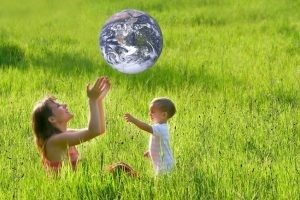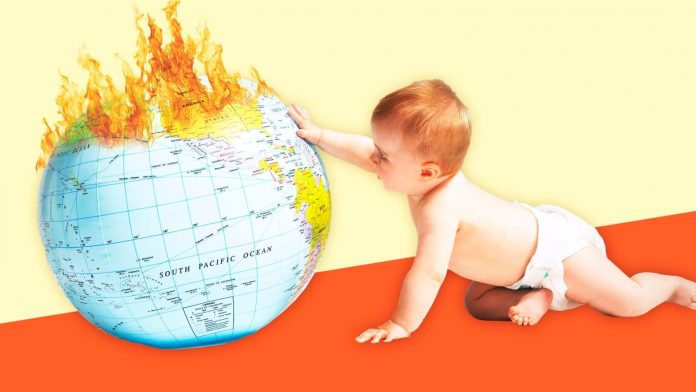Imagine you and your family live in a timber shack in Alaska. It is chilly up there, so you build yourself a huge log fire and pile on all the wood you can find. At first, the fire seems great- especially because it is cold outside. The shack starts to warm up slowly, but predictably, it is soon pretty cosy. If the fire is made too big, the shack gets hotter and hotter. Before long, you start feeling uncomfortable. You wish you had never made the fire so big in the first place. But once it is burning, there is nothing you can do to stop it. Your children will definitely start asking questions and need answers because they are part of the system. This is our planet Earth.
There is no more avoiding it; we are in a climate crisis of existential proportions. It is there every day on the news for us to see. Wildfires, droughts, superstorms, melting ice-caps, shifting jet-streams, mega-cyclone and that is just on a Monday.
It is highly likely that your children, even if you have tried to shield them from it, are aware of what is going on. The topic probably raised in school, or they have caught a glimpse of the news over your shoulder. Perhaps an older sibling is planning to join the worldwide school strikes for the climate.
Climate change can be a big and frightening topic but there are ways to help children understand. They have a good grasp of issues that adults might have more difficulty kind of processing
Children should fully understand climate change, if they do not, the glimpse they have seen from the news or heard from stories around them is fueling the kind of thoughts that were once reserved for monsters under the bed.
Children are equally part of the planet and their understanding of climate change will go a long way in saving the world. They are usually armed with knowledge and empowered to head out into the world as little climate communicators.
Climate change is not hard to understand. We get it! Our globe is warming because the carbon dioxide gas in the air is trapping the sun’s heat near the Earth. Evidence from scientific studies shows that factories, power plants and cars put the most carbon dioxide in the air.
Global warming is a big problem and it needs to be solved. Unfortunately, the problem is getting worse. The longer we ignore the problem, the worse it gets. Fortunately, it is not too late to make a change and turn things around. Talking about climate change with your children is very important in ensuring their adaptability.
Classroom conversations have empowered children to want to know more and understand what is happening to their planet. Just like any other scary things in life, discussing climate change with the children will go a long way in ensuring they understand that they have some control over the situation too. As we become part of something big, something important. Children can start learning that there is a need to take care of the planet as early as yesterday.

When talking with children about climate change, match the depth of the conversation to the child’s age. Keep it honest. Children want to know the truth. They want to understand this world they are living in without being overwhelmed by too much information. Explain the difference between day-to-day weather and climate
Connecting new ideas to familiar ones makes the topic simpler and enjoyable for children to grasp. Children know that there are good and bad guys on Mother Earth but do not have information on what both are doing in regards to climate change. Parents should be able to explain that the good guys are cleaning the mess the bad guys are posing to Mother Earth.
Children are observant and keep the memory of what they see around them. Homes situated in serene climates and environment give the children a better understanding of what the Earth looks like. Through observing what is around them; birds, trees, wildlife, soil just to mention but a few
Modelling good behavior among children will help them be great environmental warriors. Parents should take this as their sole responsibility. We are all part of something big.
Certainly, combating climate change is a collective effort. No individual will be responsible for stopping climate change. Along with these activities and education focusing on conserving energy at home will go a long way in molding a child’s understanding of climate change and the role they play in ensuring its adaptability.
Related Article: Children as a Basis for Sustainable Development




